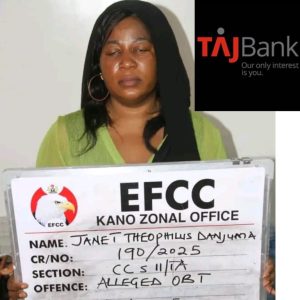
The Economic and Financial Crimes Commission (EFCC) has announced the deportation of another 51 foreign nationals convicted of cybercrime-related offences, bringing the total number of deported foreign convicts in Lagos State to 192.
In a statement issued on Sunday in Abuja, EFCC spokesperson Dele Oyewale said the latest deportation exercise was carried out in collaboration with the Nigerian Immigration Service (NIS) and the Nigerian Correctional Service (NCoS).
“The final batch of 51 convicts, including 50 Chinese nationals and one Tunisian, left Nigeria on October 16,” Oyewale confirmed.
According to him, the deportation follows the arrest and prosecution of 759 suspects in a major sting operation conducted by the EFCC on December 10, 2024, at Oyin Jolayemi Street, Victoria Island, Lagos.
Oyewale said, “The deportation exercise, which began on August 15, 2025, followed the conviction of the offenders by the Federal High Court in Lagos for offences bordering on cybercrime, money laundering, and Ponzi scheme operations.”
He recalled that the first batch of 42 convicts, comprising Chinese and Filipino nationals, was deported on August 15, while subsequent batches were repatriated throughout August and September.
“The deported convicts include nationals of China, the Philippines, Tunisia, Malaysia, Pakistan, Kyrgyzstan, and Timor-Leste,” Oyewale noted. “They were deported in coordinated batches between August and mid-October 2025, in line with court directives and immigration procedures.”
Oyewale explained that all those deported had served sentences handed down by Nigerian courts after being found guilty of cyber-enabled financial crimes.
“All the deported convicts bagged their imprisonment when they were arrested with their Nigerian accomplices believed to be members of a sophisticated cybercrime and Ponzi scheme syndicate,” he said.
The spokesperson revealed that the syndicate operated under the name Genting International Co. Limited, adding that credible intelligence and investigations confirmed their involvement in large-scale online fraud, identity theft, and cyber-enabled Ponzi schemes.
“Evidence showed that the convicted foreigners trained recruits and managed fraudulent digital platforms aimed at defrauding victims both locally and internationally,” Oyewale stated.
He added, “The Nigeria Immigration Service deported them as directed by the court.”



